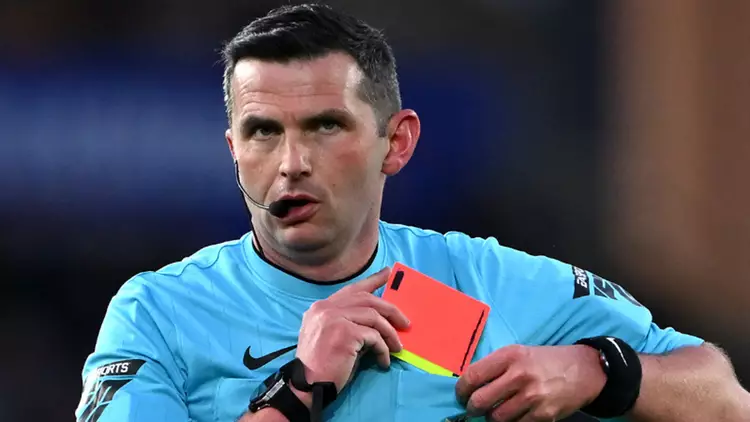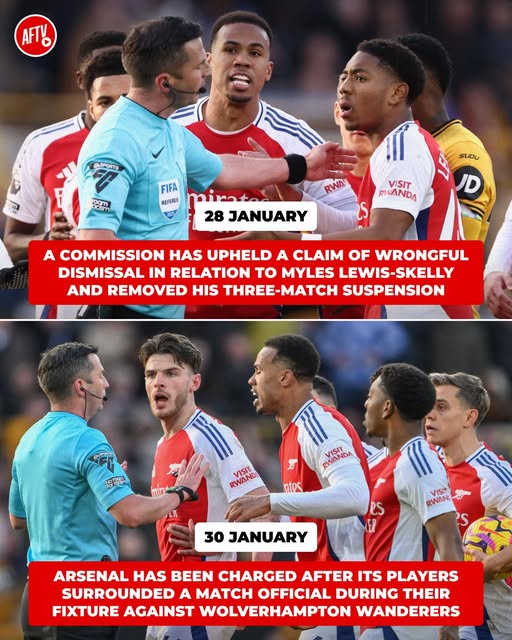THE FOCUS: PGMOL IS DAMAGING THE PREMIER LEAGUE

The Professional Game Match Officials Limited (PGMOL) has once again drawn attention for the wrong reasons, with their actions reaching new levels of controversy. Yesterday’s events seem to reflect a desperate attempt to shift the narrative away from critical discussions about the state of refereeing in the Premier League. As fans and stakeholders, we cannot allow this diversion to succeed. The primary question remains: will the Premier League continue to permit referees to undermine the quality and spectacle of football?
A secondary but equally vital concern is the role of legacy media. When will they stop treating fans as if they are naïve and incapable of discerning the truth? This patronizing approach perpetuates a culture of misdirection and denial, eroding trust in the institutions meant to safeguard the integrity of the sport.
For readers who might be skeptical of such an opening, I ask you to stay with me because you understand why this conversation matters. My enduring love for Arsenal, second only to family (most of it, anyway), fuels my commitment to seeing a better future for the club. This isn’t about petty agendas; it’s about advocating for fairness, transparency, and progress in the game we all cherish.
After the Wolves game, I predicted that the narrative would shift to the issue of tone—how fans and pundits articulate their frustrations with refereeing. Yet, even I underestimated the extent of PGMOL’s audacity. Initially, they attempted to frame one of the most glaring errors of the season as a mere “letter of the law” issue. This move was met with widespread criticism, forcing a hasty retreat. Sky Sports, ever complicit in protecting certain narratives, even went as far as deleting their tweets on the matter, a practice that seems to have become alarmingly frequent.
When their initial strategy failed, the narrative pivoted once again. It’s a classic deflection tactic: shift the focus away from the real issue—subpar officiating that tarnishes the Premier League’s reputation—and onto peripheral debates that muddy the waters. But fans aren’t blind to what’s happening.
The Premier League is, without a doubt, one of the most valuable sporting products globally. Its global reach, star-studded teams, and dramatic storylines make it a powerhouse in the world of sports entertainment. However, this reputation is at risk if refereeing standards continue to decline. Fans tune in to watch world-class football, not to see games decided by contentious decisions or inconsistencies that leave players, managers, and supporters baffled.
The PGMOL’s failures aren’t isolated incidents; they’re part of a systemic problem that undermines the credibility of the league. VAR, introduced to eliminate “clear and obvious errors,” has instead become a symbol of controversy. Inconsistent application, questionable interpretations, and a lack of accountability have turned what should be a tool for fairness into a lightning rod for criticism.
When referees make mistakes, the expectation is for transparency and accountability. Instead, we often get vague statements, defensive justifications, or outright silence. This lack of openness only fuels frustration and erodes trust. Fans aren’t asking for perfection; they’re asking for competence and fairness.
Legacy media also bears responsibility in this crisis. By downplaying legitimate concerns and parroting official narratives, they do a disservice to the fans they claim to serve. The footballing community deserves better than this. Fans are more informed and engaged than ever before, thanks to social media, analytics, and independent journalism. Treating them as passive consumers who will accept any explanation is both insulting and counterproductive.
The Wolves game highlighted just how far we’ve drifted from the ideal. Instead of addressing the root cause of the controversy, the conversation was manipulated to focus on tangential issues. This tactic not only deflects accountability but also distracts from meaningful discussions about how to improve refereeing standards.
As Arsenal fans, we’ve experienced our fair share of questionable decisions over the years. It’s infuriating to see hard-fought games influenced by poor officiating. But this isn’t just about Arsenal; it’s about the integrity of the league as a whole. When decisions consistently fail to meet the expected standard, it diminishes the competition for every team involved.
The Premier League must recognize the gravity of this issue. Referees are human and will make mistakes, but the system supporting them must be robust enough to minimize errors and ensure fairness. PGMOL must prioritize transparency, embrace constructive criticism, and take meaningful steps to improve.
Fans, too, have a role to play. By holding the league and its stakeholders accountable, we can push for change. Social media platforms, independent blogs, and fan-driven campaigns have already demonstrated their power to influence the conversation. We must continue to demand better, not just for our clubs but for the good of the game.
The time for complacency is over. If the Premier League wants to maintain its position as the pinnacle of club football, it cannot afford to let refereeing standards deteriorate any further. The focus must remain on delivering a product that lives up to its reputation—a product defined by skill, drama, and fairness, not by the failures of those tasked with enforcing the rules.
PGMOL and legacy media may attempt to deflect, but the truth is plain to see: the current state of officiating is damaging the Premier League. It’s up to all of us—fans, clubs, and media alike—to ensure that the conversation stays focused on what matters. Only then can we hope to see meaningful change and a brighter future for the beautiful game.















